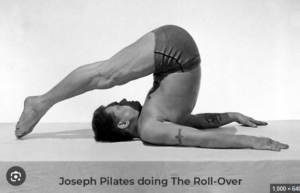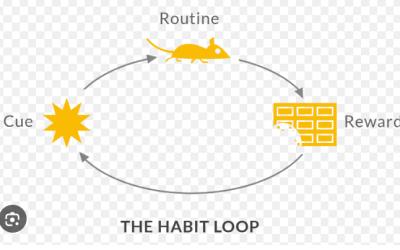The 19th century philosopher Thoreau said ‘’the price of anything is the amount of life you exchange for it.’’
So take a minute now to ask yourself, honestly, how much you are paying for your digital distraction, and is it worth it?
In the digital attention economy, we are bombarded with noise and distraction. We are continually jumping from one thing to anything, without a second of respite.
Our time is finite
When we are young, we think that life is long, old people are ancient, and we have so much time to use and play with.
When we think of time as something that we have endless amounts of, it’s easy for us to fritter it away, throwing it carelessly and mindlessly around, allowing huge chunks of it to be consumed by that shiny little god in our pockets.
Time is the one true leveler. It doesn’t matter who you are, or what you own, the one thing you can never get more of, is time. We all have the same amount. And as we get older we begin to realise that our time is a truly valuable asset, arguably our most valuable, and how we spend it can either bring us great joy and contentment, or leave us feeling frustrated and dissatisfied.
So where are you spending your time?
The future of work relies on the ability to think
The future of work has never been more uncertain. It is estimated that in the next 5 years, 75 million jobs will be lost worldwide, but that 133 million new ones will be created. Robots, automation and AI will replace many roles and industries.
Q: So what skills will make us, as human beings, valuable in the marketplace?
A: Our deep thinking skills; our ability for critical thinking, problem solving, creativity. All these will drive innovation.
And yet, there is growing consensus among researchers that one of the greatest unintended consequences of technology in the workplace is that the constant distraction it causes is at odds with how our brains are wired to work, and is leading to reduced brain performance and burnout.
Computer scientist Cal Newport explains that this mismatch between how the technology causes us to continually shift our attention from one tool, app or device to another, and how are brains are actually wired to work, is bad for productivity and more importantly, is a burden on our brains. This fragmented attention, scientists are discovering, is permanently reducing our capacity for concentrated work.
Deep thinking requires intense concentration, yet we are constantly distracted by pings and promises. ‘Who’s thinking of me now?’ ‘Who has just liked my latest upload?’ ‘What’s trending on Twitter now?’
Referred to by some as the ‘pinball effect’, this state of digital distraction is where, just like a pinball, our focus and our attention are thrown about in various places, with the result that we are left ‘in cognitive diffusion, which leads to disorientation, confusion, and most literally, de-localisation.’
There is a cost incurred every time we switch our attention from what we are doing, to another place or platform. One study estimated that it takes between 15 to 25 minutes to get your brain back to where it was before the distraction. Neuroscientists tell us that we get no better at multitasking the more we practise it either, the brain is not wired for it, despite how the modern busy world has held multitasking up to be an ability to be praised and valued.
The Cost of Clutter
Imagine your office was like this: boxes all over the floor, open, their contents spilling over the top, books and notebooks strewn across the desk, all opened, the radio on, a TV muted in the background.
Now, settle yourself down and get the brain to work on a task.
It would be hard to focus on that task with all that clutter around you, distracting you, causing you to feel a sense of discomfort at the state of it all.
The constant hum of stimuli that we allow to fill our brains is also clutter, and it brings with it a constant background hum of anxiety.
If we sign up for everything, then everything is dragging on our time and attention. We allow this low quality digital distraction to consume our time and attention, and we give little thought to the consequences of our actions. But we need to ask ourselves, what are we sacrificing? Where could we be putting our time and attention?
From a work perspective, this digital clutter is counter-productive to concentration.
From a quality of life perspective, we are sacrificing time spent with others, and time spent on high quality leisure and hobby activities such as sport, reading, writing, art and crafts, making/ fixing things, learning a language. And in doing so, I would argue that we are impoverishing the quality of our lives.
So could you embrace digital minimalism?
It’s important that we realise that social media is a product, engineered to be addictive, in order to make lots of money from our personal data for big industry.
As Google whistleblower, Tristan Harris, who was an engineer at the firm revealed, they attention engineered the service, and introduced compelling rewards that are social approval indicators, to play on our desires to be liked and accepted.
‘It is not a fundamental technology. It leverages some fundamental technology’, Newport argues.
We have become enamoured, in a very short space of time, by digital technology, and normalised our obsessive usage of it.
But we must become more aware of our relationship with it, and be intentional about how we use it. Instead of just allowing ourselves to be mindlessly sucked in, losing valuable time scrolling voyeuristically at information that has no value to us, and in fact can be quite harmful psychologically. Growing research is demonstrating the direct correlation between loneliness, anxiety, inadequacy and depression and digital usage.
We need to take back our autonomy, and choose mindfully and intentionally how and with whom we are going to spend our precious time.
Just as we are making more conscious choices around what we eat, where is it sourced and how it is grown, in order to be in the best and healthiest physical shape we can be in, so too do we need to make more conscious and deliberate choices about what we allow to consume our minds, our time and our attention. Then we can be in the best mental shape too.



